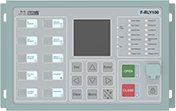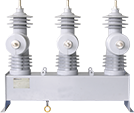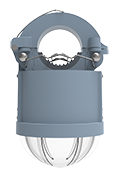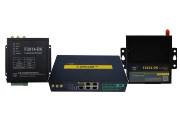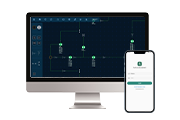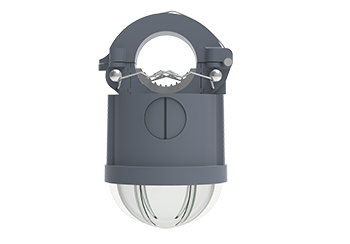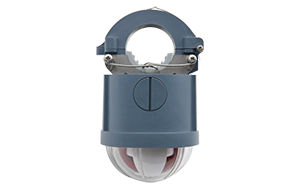Solutions
Smart Fault Indicators In Utility Power Grids

Function highlights
Accurate Fault Detection – Identifies short-circuit and ground faults in real time, reducing fault location time from hours to minutes.
Real-Time Data Monitoring – Continuously monitors current, voltage (via electric field), and line temperature for early risk detection.
Wireless Communication – Transmits fault and operation data to SCADA systems through 2G/3G/4G networks.
Live Installation – Enables quick deployment without power interruption or outage.
Smart O&M – Data-driven operation reduces inspection mileage by 80% and labor costs by 50%.
High Integration Capability – Seamlessly connects with existing distribution automation systems.
Enhanced Safety – Minimizes field troubleshooting risks and improves grid reliability.
Overview
Customer Information
ClientName:A power supply company in South America
Industry :Operation and maintenance of public utility power transmission and distribution networks
Scale:Responsible for the operation and maintenance of more than 5,000 kilometers of power distribution lines and 2,000 distribution substations nationwide ; end customers face problems such
as long spans and numerous branches of overhead power lines, vast and sparsely populated areas, long average fault location time of 24-72 hours, frequent unplanned power outages, high labor costs for inspection, and enormous pressure on power supply reliability
Existing operation and maintenance model:
Fault location: Relying on reports from the public and maintenance personnel to conduct seg- mented power outages for troubleshooting, the average location time is as long as 4-8 hours.
Human resources: A large number of inspection teams are needed, on standby 24 hours a day, resulting in high labor costs.
Data gaps: The line's operational status lacks real-time data support, making predictive mainte- nance impossible and relying primarily on passive responses.
Economic and reputational losses: Prolonged power outages lead to high customer complaint rates and cause significant damage to the stable production of local businesses.
Solution introduction
Four - Faith Smart Fault Indicator Solution :
Product Name: JYZ-HW Smart Fault Indicator
Core functions:
1) Precise instantaneous permanent short circuit and ground fault detection and indication (local/re- mote), capable of identifying various line operating conditions such as power outage and resto- ration, and reclosing.
2) Real-time acquisition of line load current, voltage (based on electric field strength), and line temperature.
The line status is transmitted to SCADA in real time via wireless communication ( 2G/3G/ 4G).
3) Independent live installation , eliminating the need for power outages and maintenance.
Deployment plan:
Deployment scale: Approximately [number missing ] were installed on 40 critical paths . 6,000 fault indicators.
Integration and connection with the customer's existing power distribution automation master station system.
Implementation period: From installation to full operation, it takes about 1 year in total.
Feature and Benefit
Core Value: Fault location time was reduced by 85% (from hours to minutes), annual inspection costs were reduced by over 50 % , power outage time was effectively reduced, ensuring normal production for local businesses, and user complaints were significantly reduced.
Quantitative Benefits:
|
Profitability metrics |
Before deployment |
After deployment |
Improvement effect |
Annualized value |
|
Mean Time to Find Fault |
4-8h |
30-60 minutes |
Reduced by approximately 85% |
Save 10,000 hours/year |
|
Fault inspection mileage |
24,000 km/year |
3600km/year |
Reduce by 80% |
Save $ 500,000 /year |
|
Improved human resource efficiency |
10 people/time |
3 people/time |
Reduce by 70% |
|
|
Customer complaint volume |
Approximately 900 times/year |
100 times/year |
Reduced by approximately 88% |
|
Enhanced security: Reduces the risk of maintenance personnel blindly troubleshooting line security issues.
Decision support: Real-time data-driven power grid status awareness provides a basis for network optimization and investment planning.
Brand Image: To build an Smart and highly reliable power distribution network and become an industry benchmark.

